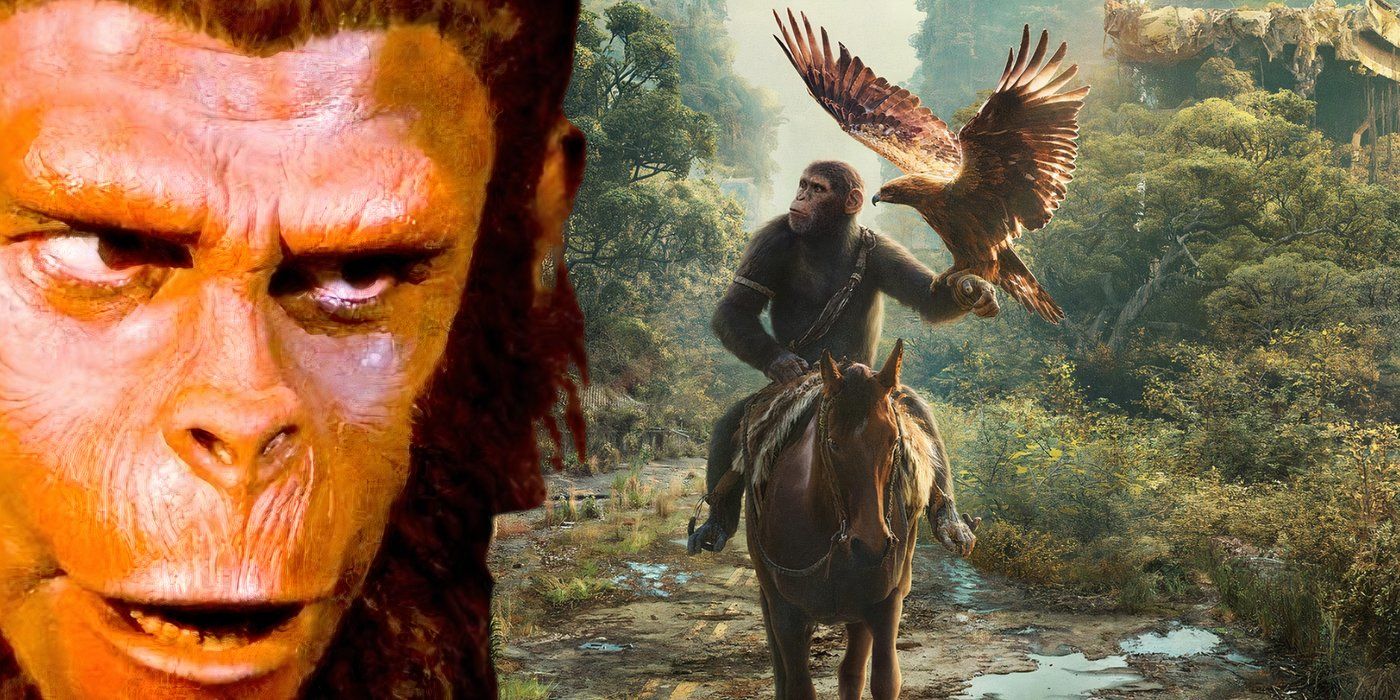Conquest of the Planet of the Apes, released in 1972, marked a darker, grittier turn for the Planet of the Apes franchise. Serving as the fourth installment in the original series, and following the lighter yet poignant Escape from the Planet of the Apes, the film imagines a dystopian future where enslaved apes rise up against human oppression. This storyline holds significant thematic weight, exploring themes of societal control, rebellion, and liberation in a way that is provocative. However, while Conquest boasts an ambitious narrative and a fantastic premise, it is held back by budget constraints and clumsy execution.
These limitations often prevented the film from reaching the level of depth and nuance that its storyline deserved. Despite its flaws, Conquest of the Planet of the Apes contributed to the franchise’s legacy, laying down a foundation of rebellion and conflict that has resonated through the Planet of the Apes‘s subsequent adaptations and reboots. The 2011 reboot, Rise of the Planet of the Apes, took some inspiration from Conquest, but the original film’s complex themes of societal revolution were only briefly touched upon. C onquest offers a unique storyline that could be reimagined and explored with today’s advanced film technology and more expansive budgets.
Conquest Of The Planet Of The Apes Isn’t One Of The Franchise’s Best, But Had A Fantastic Premise
Humans Enslave Apes In This Intriguing Narrative
Conquest of the Planet of the Apes‘s vision of a dystopian future, where humans enslave apes to the point of rebellion, brings a raw, gritty perspective that feels prescient even today. However, the film’s execution sometimes falls short of its ambitious ideas, limited by the practical effects and budget constraints of the time. While this affects some scenes’ emotional weight and complexity, the film’s thematic strength shines through.

Related
All 10 Planet Of The Apes Movie Endings, Ranked Worst To Best
Ranking the Planet of the Apes endings, we dive into each film’s conclusion—from iconic twists to bleak finales—revealing their impact and legacy.
In some ways, these imperfections give Conquest a sense of authenticity, as it doesn’t shy away from depicting the harsh realities of oppression. Its narrative, though imperfectly realized, establishes a provocative, dystopian world that effectively sets up the later conflict and moral ambiguity that the franchise would revisit in reboots and adaptations. While it could have been executed better, its willingness to be harsh is one of the film’s greatest strengths.
Could The Modern Planet Of The Apes Movies Revisit Conquest’s Wasted Premise?
Conquest Of The Apes’s Story Deserves Another Shot
With the success of the recent Planet of the Apes trilogy, there is narrative potential for revisiting the story set forth in Conquest of the Planet of the Apes. The trilogy, starting with Rise of the Planet of the Apes and culminating in War for the Planet of the Apes, effectively modernized the franchise by focusing on Caesar’s journey from lab test subject to revolutionary leader. However, while the films touched on themes of uprising and revolution, they took a more character-driven, intimate approach to Caesar’s experiences and his personal motivations.
Revisiting Conquest’s story in a sequel to Kingdom of the Planet of the Apes would allow for a shift toward a broader socio-political context, exploring the nuances of a world dominated by an unjust social hierarchy. Today’s filmmakers would have the resources to fully flesh out the dystopian society that Conquest only hinted at. In Conquest, the revolution led by Caesar was a straightforward struggle against oppressive human rulers. In a modern adaptation of Conquest, this storyline could become more layered still, delving into the reasons for the apes’ subjugation, how societal control is maintained, and the moral implications of their rebellion.
In a modern adaptation of
Conquest
, this storyline could become more layered still, delving into the reasons for the apes’ subjugation, how societal control is maintained, and the moral implications of their rebellion.
In our current socio-political climate, a well-executed Conquest adaptation could strike a resonant chord by drawing on themes of inequality, exploitation, and resistance, portraying them through a unique sci-fi lens. The inherent conflict between humans and apes over power and freedom is timeless. As such, a reimagined Conquest could explore it with greater nuance, showing how both sides grapple with issues of identity, loyalty, and survival.

- Director
- J. Lee Thompson
- Release Date
- June 30, 1972
- Cast
- Roddy McDowall , Ricardo Montalban , Severn Darden , Don Murray , Hari Rhodes
- Runtime
- 88 Minutes


